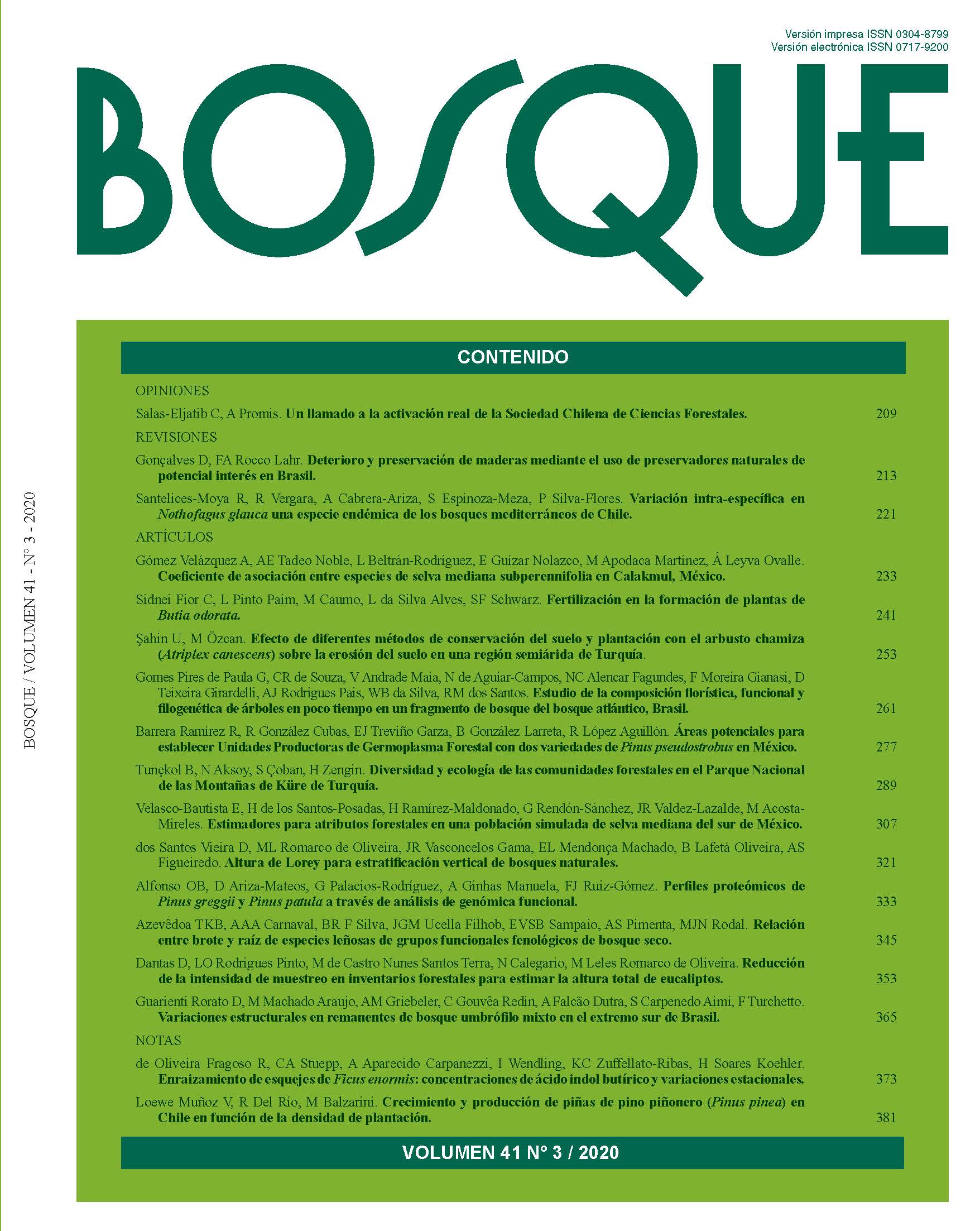Crecimiento y producción de piñas de pino piñonero (Pinus pinea) en Chile en función de la densidad de plantación
Contenido principal del artículo
Resumen
El pino piñonero (Pinus pinea) es una especie importante por sus deliciosas semillas (piñones), el fruto seco más caro del mundo. En su hábitat nativo, la densidad de plantación es una decisión silvicultural clave en esta especie heliófila debido a su impacto en el crecimiento y producción de piñas. En Chile, las densidades de plantaciones adultas son medias y altas. El objetivo de este estudio fue evaluar el impacto de la densidad en el crecimiento y producción de piñas en plantaciones establecidas. Treinta plantaciones, 15 con alta densidad (1.667 árboles ha-1) y 15 con densidad media (500 árboles ha-1) se agruparon en pares de plantaciones de similar edad y características del sitio. La densidad de plantación tuvo un impacto significativo en el crecimiento y producción de piñas de P. pinea. La densidad media estuvo asociada con 46 % mayor diámetro a la altura del pecho y 2,8 veces mayor producción de piñas que en el esquema de alta densidad. No obstante, en la densidad de 500 árboles ha-1, la altura media puede dificultar y encarecer la cosecha de piñas. En áreas húmedas (macrozona sur de Chile), la densidad media de plantación tuvo un efecto mayor en la producción de piñas que en el crecimiento. Este estudio confirma investigaciones previas realizadas en hábitats nativos del pino piñonero y subraya la necesidad de encontrar una densidad de plantación óptima para favorecer la producción de piñas y la cosecha.

